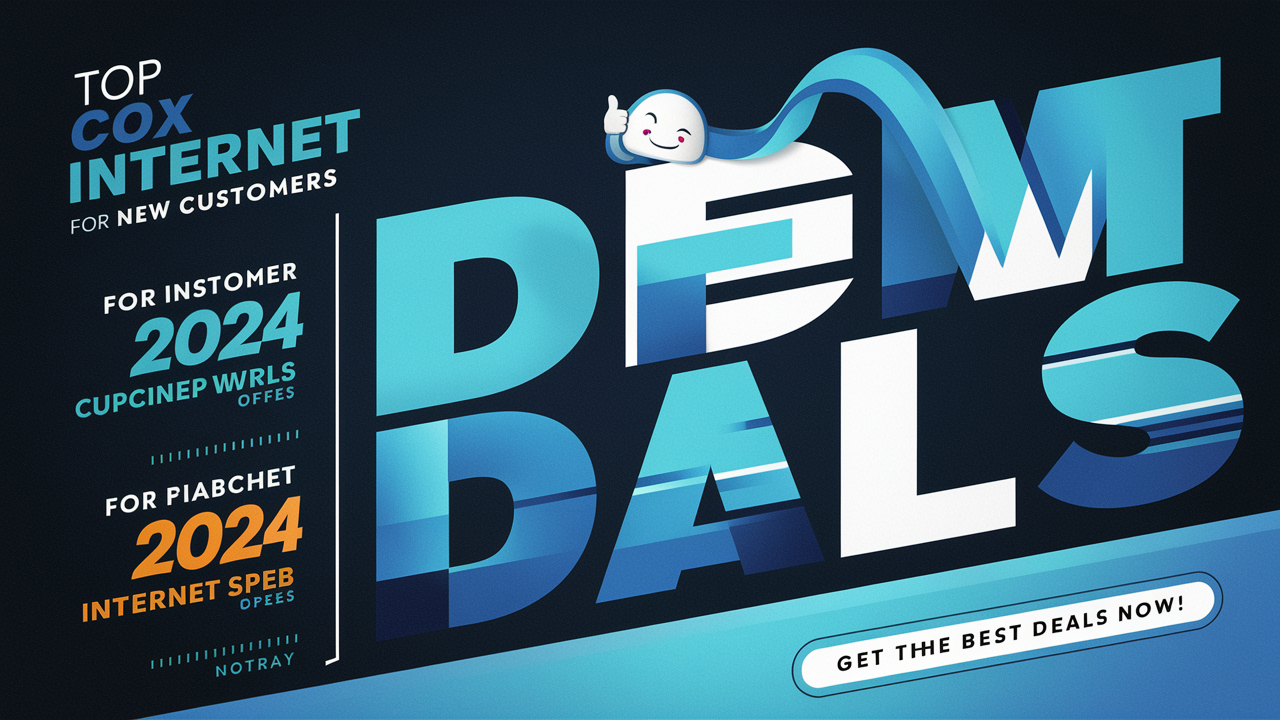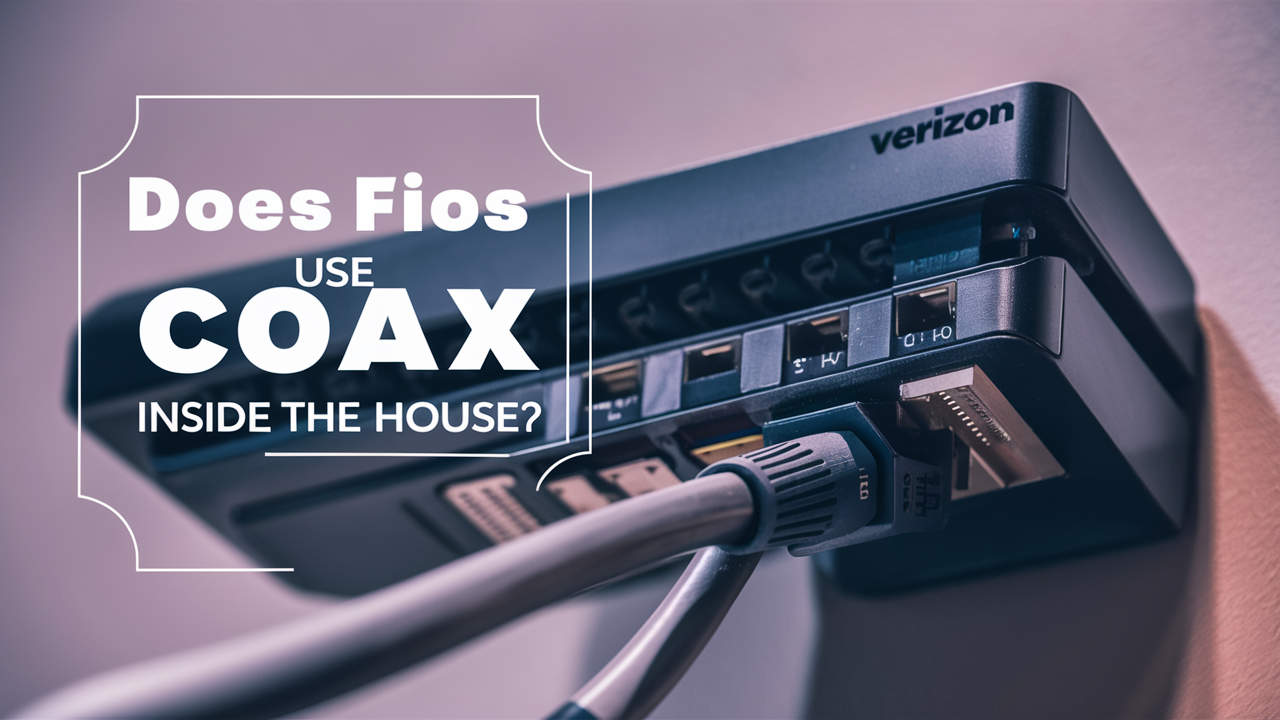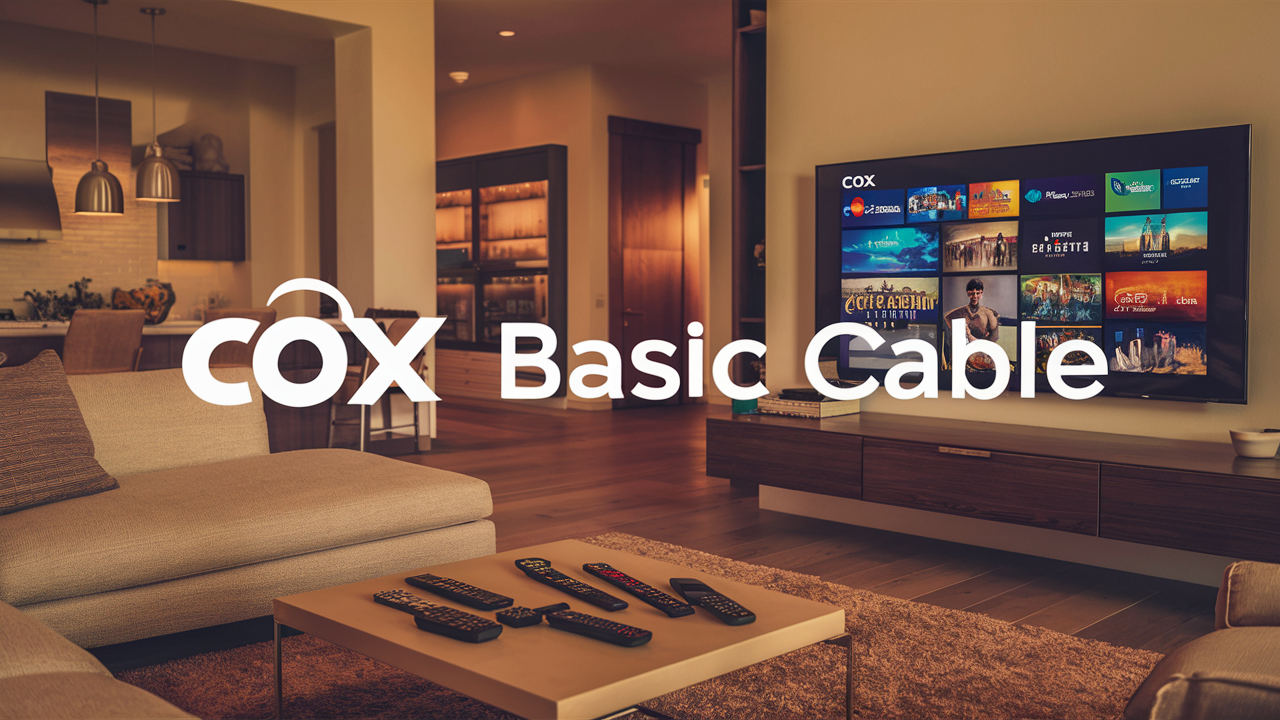How much is Cox Internet by itself?

Understanding the standalone cost of Cox Internet in 2025 requires exploring various plans, speed tiers, and potential hidden fees. This article breaks down the typical pricing for Cox Internet-only packages, examines influencing factors like location and promotions, and provides insights into choosing the best plan for your needs and budget.
Unpacking the Cost: How Much is Cox Internet By Itself in 2025?
In the ever-evolving digital landscape of 2025, reliable and fast internet service is no longer a luxury but a fundamental necessity. For many households, Cox Communications stands out as a prominent internet service provider (ISP) across various regions of the United States. However, when considering Cox, a common question arises: "How much is Cox Internet by itself?" This query delves into the cost of standalone internet packages, free from the bundled deals that often include television or phone services. Understanding this pricing is crucial for consumers aiming to manage their budgets effectively and select a plan that precisely meets their connectivity needs without unnecessary expenditure. This comprehensive article aims to demystify the pricing structure of Cox Internet-only plans, providing detailed insights into the factors that influence costs, the typical price ranges you can expect in 2025, and strategies to secure the best possible value. We will explore the various speed tiers, promotional offers, potential additional charges, and how Cox's standalone offerings stack up against the competition.
The cost of Cox Internet by itself in 2025 can vary significantly, but generally, you can expect standalone internet plans to range anywhere from approximately $50 per month for basic, lower-speed tiers to over $100 per month for high-speed, premium packages. This wide spectrum is influenced by several critical factors, including the specific download and upload speeds offered, data caps (or lack thereof), promotional pricing that may be time-limited, your geographical location, and whether you opt for additional equipment like a modem or router from Cox. Unlike bundled packages which might offer a perceived discount for a suite of services, standalone internet pricing focuses solely on the connectivity aspect. This allows for a clearer understanding of the investment required for internet access alone, empowering consumers to make more informed decisions based on their individual usage patterns and budget constraints. As we delve deeper, we'll dissect these influencing elements and provide concrete examples to illustrate the pricing realities of Cox's internet-only offerings in the current market.
Deconstructing Cox Internet Pricing: Key Factors at Play
The price tag attached to a Cox Internet-only plan isn't a static figure; it's a dynamic reflection of several interconnected factors. Understanding these elements is paramount to grasping the true cost and identifying opportunities for savings. In 2025, these key drivers continue to shape the pricing landscape:
Speed Tiers and Performance
The most significant determinant of Cox Internet pricing is the speed tier you select. Cox offers a range of plans designed to cater to different user needs, from basic browsing and email to heavy streaming, online gaming, and supporting multiple connected devices simultaneously. Higher download and upload speeds require more robust infrastructure and network capacity, which translates into a higher monthly cost. For instance, a plan offering 100 Mbps download speed will invariably be less expensive than a plan providing 1 Gig (1000 Mbps) download speed. It's essential to match your speed needs to the plan to avoid overpaying for unused capacity or experiencing frustratingly slow performance with an inadequate plan.
Geographical Location and Market Competition
Cox's service availability is not nationwide, and pricing can vary even within different neighborhoods or cities where Cox operates. Areas with higher population density or more intense competition from other ISPs might see more competitive pricing or aggressive promotional offers to attract and retain customers. Conversely, in areas where Cox has less competition, prices might be higher. Local taxes and franchise fees also play a role, adding to the final monthly bill.
Promotional Offers and Contract Terms
ISPs like Cox frequently use promotional pricing to attract new customers or encourage upgrades. These introductory offers often provide a discounted rate for the first 6, 12, or 24 months of service. It's critical to understand that once the promotional period ends, the price will revert to the standard, non-promotional rate, which can be significantly higher. Many plans also come with contract requirements. Signing a 12-month or 24-month contract typically locks in a lower monthly price compared to month-to-month service, but breaking the contract early usually incurs substantial early termination fees (ETFs).
Equipment Rentals
While you have the option to purchase your own compatible modem and router, many customers opt to rent equipment from Cox. This convenience comes at a monthly cost, typically ranging from $10 to $20 per month for a modem or a modem/router combo unit. Over the long term, purchasing your own equipment can be more cost-effective, but it requires an upfront investment and the responsibility of managing the hardware.
Data Caps and Overage Charges
While Cox has been moving towards offering unlimited data on many of its plans, some lower-tier or older plans might still have data caps. Exceeding these data limits can result in throttling (reduced speeds) or incurring significant overage charges. Understanding the data allowance of your chosen plan and your household's typical data consumption is vital to avoid unexpected costs.
Current Cox Internet Plans and Pricing Landscape (2025)
As of 2025, Cox Communications offers a tiered structure for its internet-only services, commonly branded under "Cox Internet." While exact pricing can fluctuate based on region and ongoing promotions, here's a general overview of the types of plans and their approximate price points:
1. Cox Internet Starter / Essential (Basic Speeds):
- Typical Speeds: Download speeds ranging from 25 Mbps to 100 Mbps. Upload speeds are considerably lower, often around 5-10 Mbps.
- Ideal For: Single users or small households with minimal internet needs – basic web browsing, email, social media, and occasional standard-definition streaming.
- Estimated Price Range (Internet Only): $49.99 - $69.99 per month. This often reflects a promotional rate for the first 12 months. The standard rate after promotions can be $10-$20 higher.
- Data: May have data caps on some older plans, but newer offerings are increasingly moving towards unlimited.
2. Cox Internet Preferred / Advanced (Mid-Tier Speeds):
- Typical Speeds: Download speeds ranging from 100 Mbps to 300 Mbps. Upload speeds typically between 10 Mbps and 20 Mbps.
- Ideal For: Average households with multiple users, HD streaming on multiple devices, online gaming, video conferencing, and moderate file downloads/uploads.
- Estimated Price Range (Internet Only): $69.99 - $89.99 per month. Again, promotional pricing is common, with standard rates increasing post-promotion.
- Data: Most plans in this tier in 2025 are likely to include unlimited data.
3. Cox Internet Ultimate / Gigablast (High-Speed / Gigabit):
- Typical Speeds: Download speeds ranging from 300 Mbps up to 1 Gbps (1000 Mbps). Upload speeds can range from 20 Mbps to 35 Mbps or higher on gigabit plans.
- Ideal For: Power users, large households with numerous connected devices, 4K streaming, intensive online gaming, large file transfers, and businesses operating from home.
- Estimated Price Range (Internet Only): $99.99 - $129.99+ per month. Gigabit plans are premium services and reflect the highest price points. Promotional rates might be available for the first 12-24 months.
- Data: Unlimited data is standard for these high-performance plans.
Important Considerations for 2025 Pricing:
- Promotional vs. Standard Rates: Always clarify the introductory price and the price after the promotional period expires. Many advertised prices are for new customers on 12-month contracts.
- Contract Requirements: Month-to-month plans are usually more expensive than those requiring a 12 or 24-month commitment.
- Equipment Fees: Factor in approximately $15-$20 per month if you rent a modem/router from Cox.
- Installation Fees: New installations can sometimes incur a one-time fee, though this is often waived with certain promotions.
- Taxes and Fees: Expect additional local taxes and regulatory fees on top of the advertised price.
To get the most accurate pricing for your specific location, it is always recommended to visit the official Cox Communications website or contact their sales department directly.
Navigating the Fine Print: Hidden Fees and Additional Costs
While the advertised monthly price for Cox Internet-only plans provides a baseline, consumers must be vigilant about potential hidden fees and additional costs that can inflate the final bill. In 2025, these charges, while sometimes unavoidable, can significantly impact the overall affordability of your service. Understanding these is key to avoiding unwelcome surprises.
Installation Fees
For new service activations, Cox typically charges an installation fee. This fee can vary depending on the complexity of the installation (e.g., if new wiring is needed) and whether you are a brand-new customer or reactivating service. Standard self-installation might be free or low-cost, while professional installation can range from $50 to $150 or more. Many promotions, especially for higher-tier plans or during specific marketing campaigns, offer to waive this installation fee, so always inquire about current offers.
Equipment Rental Fees
As mentioned previously, renting a modem and/or router from Cox comes with a recurring monthly charge. In 2025, these fees typically fall between $10 and $20 per month. While convenient, especially for less tech-savvy users, this cost adds up significantly over the lifespan of your service. For example, $15 per month amounts to $180 per year. Investing in your own compatible modem and router can save hundreds of dollars annually, though it requires an initial purchase and ensures your equipment remains compatible with Cox's network.
Early Termination Fees (ETFs)
Many of Cox's most attractive pricing offers are tied to a 12-month or 24-month contract. While these contracts secure a lower monthly rate, they also bind you to the service for the agreed term. If you need to cancel your service before the contract expires, you will likely face substantial Early Termination Fees. These fees are often prorated based on the remaining time on your contract, but they can easily amount to several hundred dollars. Carefully consider your long-term needs before committing to a contract, especially if you anticipate moving or changing service providers.
Overage Charges (If Applicable)
While Cox is increasingly offering unlimited data plans, some legacy or lower-tier plans might still impose data caps. If your plan includes a data limit (e.g., 1 TB per month), exceeding this limit can trigger overage charges. These charges can be substantial, often billed per gigabyte over the limit. It is crucial to verify whether your chosen plan has a data cap and to monitor your data usage through Cox's online portal or app to avoid unexpected fees. Many users find that even with streaming and gaming, modern unlimited plans are the most cost-effective and stress-free option.
Taxes, Surcharges, and Regulatory Fees
The advertised monthly price rarely includes all applicable taxes, surcharges, and regulatory fees. These vary by state and local municipality but can add an additional 10-20% to your monthly bill. These include items like federal, state, and local taxes, franchise fees (paid to local governments for using public rights-of-way), and other administrative or regulatory charges. While these are standard for most utility services, they are an important part of the total cost of ownership.
Service Call Fees
If you experience technical issues that require a Cox technician to visit your home, you may be charged a service call fee. This fee typically applies if the problem is determined to be with your customer-owned equipment or internal wiring, or if the issue stems from a problem outside of Cox's network that isn't related to their installation. Troubleshooting issues thoroughly yourself or with remote support first can help avoid these charges.
Comparing Cox Internet-Only Plans: A Detailed Analysis
To truly understand the value proposition of Cox Internet-only plans in 2025, a direct comparison of their different tiers is essential. This analysis focuses on the core features and pricing, excluding bundled services, to highlight the standalone cost and performance trade-offs.
| Feature | Cox Internet Starter/Essential (Example) | Cox Internet Preferred/Advanced (Example) | Cox Internet Ultimate/Gigablast (Example) |
|---|---|---|---|
| Advertised Download Speed | Up to 100 Mbps | Up to 300 Mbps | Up to 1 Gbps (1000 Mbps) |
| Advertised Upload Speed | Up to 10 Mbps | Up to 20 Mbps | Up to 35 Mbps (or higher) |
| Estimated Monthly Price (Promotional, 12-month contract) | ~$59.99 | ~$79.99 | ~$109.99 |
| Estimated Monthly Price (Standard, Post-Promotion) | ~$70.00 - $80.00 | ~$90.00 - $100.00 | ~$120.00 - $140.00+ |
| Data Allowance | Potentially capped (verify), often 1TB | Unlimited | Unlimited |
| Ideal Use Case | Basic browsing, email, light streaming | HD streaming, multiple users, moderate gaming | 4K streaming, heavy gaming, multiple devices, large downloads |
| Equipment Rental (Monthly) | ~$15 | ~$15 | ~$15 |
| Installation Fee (Potential) | $50 - $100 (often waived) | $50 - $100 (often waived) | $50 - $100 (often waived) |
| Contract Required for Best Price | Yes (12 months) | Yes (12 months) | Yes (12 or 24 months) |
Analysis:
The table clearly illustrates the tiered pricing structure. The "Starter" plan offers the lowest entry point, making it accessible for budget-conscious individuals or households with minimal internet demands. However, its lower speeds and potential data caps can be limiting for modern usage patterns. The "Preferred" tier strikes a balance, providing significantly faster speeds and unlimited data at a moderate price increase, making it a popular choice for many families. The "Ultimate" or "Gigablast" plan is for those who demand the highest performance, justifying its premium price with speeds capable of handling the most demanding online activities. The difference between promotional and standard pricing is a critical factor; consumers must budget for the higher standard rate once introductory offers expire. Similarly, the recurring equipment rental fee can add a substantial amount to the total cost over time, making self-provided equipment a financially sound long-term strategy.
Maximizing Value: Tips for Getting the Best Cox Internet Deal
Securing the best possible price for Cox Internet-only service in 2025 involves more than just picking the cheapest plan. It requires a strategic approach to negotiation, understanding promotional cycles, and leveraging available options. Here are actionable tips to maximize value:
- Negotiate Aggressively: Don't be afraid to negotiate with Cox sales representatives. Mention competitor pricing in your area, highlight any loyalty or retention offers you've received from other providers, and clearly state your budget. Often, representatives have discretion to offer better deals, especially for new customers or those looking to switch. A polite but firm negotiation can yield significant savings.
- Leverage Promotions and Bundles (Strategically): While this article focuses on internet-only, be aware of promotional bundles. Sometimes, a bundle that includes a service you genuinely need (like a basic TV package or mobile plan if Cox offers it in your area) might offer a better overall discount than standalone internet. However, if you truly only need internet, focus on internet-specific promotions. Look for "new customer" offers, limited-time discounts, and annual price guarantees.
- Consider Contract Length Wisely: Longer contracts (12 or 24 months) usually come with lower monthly rates. If you are confident in your long-term residency and needs, a contract can lock in a favorable price. However, always factor in the potential Early Termination Fees if your circumstances change. Compare the total cost over the contract term, including potential ETF, versus month-to-month pricing.
- Purchase Your Own Equipment: As repeatedly emphasized, the monthly rental fee for Cox's modem/router can add up. Research compatible modems and routers online (e.g., on Amazon, Best Buy) and compare their upfront cost to the total rental fees over 1-2 years. Ensure any purchased equipment meets Cox's speed and DOCSIS standards for optimal performance. Check Cox's website for a list of approved devices.
- Understand Your Speed Needs: Avoid overpaying for speed you don't use. Use online speed tests (if you have existing service) or assess your household's typical internet activities. If you primarily browse, email, and stream standard-definition content, a lower-tier plan might suffice. If you have multiple users, engage in heavy gaming, or stream 4K content regularly, investing in a higher tier is necessary. Matching speed to need prevents unnecessary monthly expenses.
- Check for Local Deals and Community Offers: Sometimes, local municipalities or community organizations partner with ISPs to offer discounted rates. It's worth checking if Cox has any such agreements in your specific area.
- Be Aware of Price Increases: Most promotional periods end, and prices will increase. Factor this into your budget. Some plans might offer a price guarantee for the duration of the contract, which is valuable. Always ask about price guarantees and the standard rate after promotions.
- Referral Programs: See if Cox offers a referral program. If you know someone who is a Cox customer, they might be able to refer you, potentially earning both of you a discount or credit.
Beyond the Price Tag: Understanding Speed, Data, and Equipment
While the monthly cost is a primary concern, a truly informed decision about Cox Internet-only service in 2025 requires a deeper understanding of the technical aspects that contribute to the value and performance of your chosen plan. The price tag is only one piece of the puzzle; speed, data allowances, and equipment are equally critical.
Download vs. Upload Speeds
Cox, like most cable ISPs, offers asymmetrical speeds, meaning download speeds are significantly higher than upload speeds. Download speed determines how quickly you can receive data from the internet (e.g., streaming video, loading web pages, downloading files). Upload speed dictates how quickly you can send data to the internet (e.g., uploading photos/videos, video conferencing, online gaming responsiveness). For typical home use, download speed is paramount. However, if you frequently engage in video calls, upload large files, or stream content live, higher upload speeds become increasingly important. Ensure the advertised speeds align with your primary internet activities.
Data Caps and Unlimited Data in 2025
The trend in 2025 is overwhelmingly towards unlimited data plans for most residential internet services, including Cox. However, it's crucial to verify this for the specific plan you are considering. Data caps, typically ranging from 1 TB to 1.25 TB on plans that still have them, can be a concern for households that stream a lot of 4K video, engage in extensive online gaming, or download/upload large files frequently. Exceeding a data cap can lead to throttled speeds or costly overage fees. Unlimited data plans offer peace of mind and predictable monthly costs, eliminating the need to constantly monitor usage.
Modem and Router Functionality
The modem is the device that connects your home to Cox's network, translating the signals. The router, often combined with the modem in a single gateway device, creates your home Wi-Fi network, allowing multiple devices to connect wirelessly. The capabilities of your modem and router directly impact your internet experience. If you rent equipment from Cox, it's generally designed to support the speeds of the plan you subscribe to. If you purchase your own, ensure it's compatible with Cox's network and capable of handling the speeds of your chosen plan. For example, a DOCSIS 3.0 modem might struggle with gigabit speeds, whereas a DOCSIS 3.1 modem is recommended for such plans. Using outdated or underpowered equipment can bottleneck your internet speeds, even if you pay for a high-tier plan.
Wi-Fi Performance
It's important to distinguish between the internet speed coming into your home (provided by Cox) and the Wi-Fi speed within your home. Your Wi-Fi performance depends on the router's capabilities, its placement, and the physical layout of your home. Even with a gigabit internet plan, a weak Wi-Fi signal or an older router can result in slow speeds on your devices. For larger homes or areas with Wi-Fi dead spots, consider mesh Wi-Fi systems or range extenders to ensure consistent connectivity throughout your residence. Optimizing your home network setup is as crucial as choosing the right ISP plan.
The Competitive Landscape: Cox vs. Other ISPs in 2025
When evaluating the cost of Cox Internet by itself, it's essential to place it within the broader context of the ISP market in 2025. Cox primarily competes with other cable providers (like Spectrum, Xfinity) and, in some areas, with fiber optic providers (like AT&T Fiber, Verizon Fios) and fixed wireless/5G home internet services. Each type of ISP offers different strengths and pricing models.
Cable ISPs (e.g., Cox, Spectrum, Xfinity):
- Pros: Widely available in many urban and suburban areas, offer a range of speeds from basic to gigabit, often competitive pricing, especially with promotions.
- Cons: Upload speeds are typically much lower than download speeds, performance can sometimes degrade during peak usage hours due to shared bandwidth, pricing can increase significantly after promotional periods.<
Related Stories





